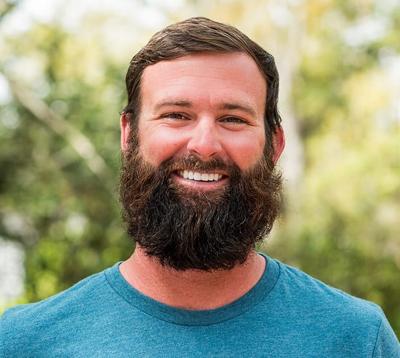I’ve been working on the waterfront for more than two decades. After being a professional fisherman for years, I was intrigued to learn more about the benefits of oyster harvesting and how I could potentially make a living from hand-raised shellfish. In 2017, when I launched Lowcountry Oyster Co. in Charleston, I never dreamed of how rewarding it would be to feed my community, and beyond, with fresh, locally grown, sustainable seafood.
Each day, my team and I work on the farm in the ACE Basin to raise millions of oysters from the size of one’s pinkie nail to the full-grown ones that fit on your dinner plate. It’s a round-the-clock process, with each crop taking up to a year to raise.
Today’s modern aquaculture system is cleaner and more sustainable than ever. Since we use regenerative farming techniques to grow and cultivate the oysters, we are not limited to seasons and can harvest oysters all year round. Our vertically integrated floating cage systems allow us to grow shellfish in a manner that limits our carbon footprint.
Another environmental benefit that comes from oyster harvesting is that the oysters effectively and efficiently filter our waters, supporting the health of surrounding ocean ecosystems. I’m proud to be part of an aquaculture industry that has evolved to become one of the most sustainable forms of food production.
I cannot help but think of the possibilities that an expanded aquaculture industry in the United States would bring our community and nation. Currently, the permitting process to farm fish in federal waters in the ocean is difficult, costly and lengthy, and therefore, American water farmers who want to expand their business are hindered. A clear regulatory path to permitting a farm is needed so more working waterfronts can reap the benefits of job creation and providing locally sourced, sustainable seafood.
But it's not just working waterfronts that an expanded aquaculture industry would benefit. It would create jobs throughout the entire seafood supply chain. Those include infrastructure jobs, jobs on the production assembly line and in processing, packaging and distribution, and sales and marketing positions. Additionally, terrestrial farmers are needed to grow soybean, corns, peas and other crops that can be used in fish feed. Emerging research and technology jobs, including artificial intelligence and machine learning, are also in demand as the industry continues to innovate and modernize.
For those of us who love seafood, it may be surprising to know that only 5% to 7% of seafood consumed is raised in America. The United States relies almost solely on international imports; up to 85% of seafood that Americans consume is imported. The worldwide demand for seafood is growing; the Economics of Aquaculture Policy and Regulation predicted that 40 million tons of fish will be needed to meet the demand by 2030. That figure, coupled with the fact that the world population is projected to reach 9 billion by 2050, underscores America's growing need for a diverse set of food sources.
An American aquaculture industry can fill food, nutrition and economic needs. As a leader in research and technology and with the best managed fisheries in the world, there is no reason the United States cannot be a frontrunner in fish farming production.
The Advancing the Quality and Understanding of American Aquaculture Act now before Congress would establish a clear permitting process for U.S. marine aquaculture. If passed, the new law would call for modern siting and monitoring technologies and a process for public input, which would ensure that communities in areas of new aquaculture infrastructure are considered prior to granting the permits. As a local oyster farmer, I support efforts in Congress to expand the offshore aquaculture industry. When done right, the potential for aquaculture is as limitless as the ocean.
Trey McMillan is an oyster farmer and founder of Lowcountry Oyster Co. in Charleston. He is vice president of the S.C. Shellfish Growers Association and South Carolina’s state representative for the East Coast Shellfish Growers Association.







